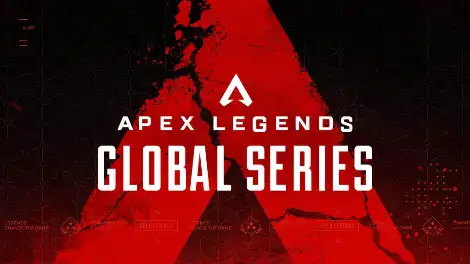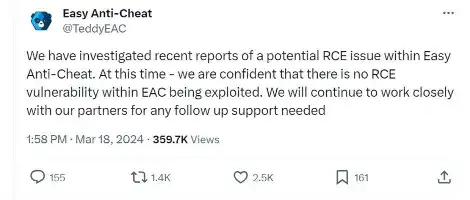ALGS North America Finals Postponed After Apex Legends Hacker Attacks
The ALGS just went through a Hollywood scenario as a cyberattack caused an interruption of this Monday’s competitive matches in the Apex Legends Global Series Pro League tournament. The attack forced professional players to abruptly stop their matches due to the detection of cheats on their accounts. Noyan Ozkose, known in the gaming world as Genburten and representing the Dark Zero team, noticed the unfair boost first, as he quickly realized when entering a match that he had the ability to see opponents through walls. Similarly, Phillip Dosen, alias ImperialHal, competing for TSM, was blessed with an "aimbot," a tool enabling automatic aiming at enemies without manual intervention. Despite ImperialHal persisting in the game until tournament organizers intervened, the game's automatic detection systems banned him, along with teammate Evan Verhulst.
The shocking event left both players and spectators shaken, as evidenced by the frantic audio recordings shared on Twitter. Speculation within the esports community points to an exploit using an unpatched remote code execution (RCE) vulnerability within the Apex Legends game. After the perpetrator sent a couple of messages to AntiCheatPD, a platform that monitors video game cheats, claiming he used an RCE exploit, this theory gained even more traction. However, the precise component of the game targeted by the exploit is still a mystery. Some theories revolve around whether the vulnerability lies within the Apex Legends game client itself or within its built-in anti-cheat mechanism (Easy Anti-Cheat). Another theory claims that the vulnerability may be in the Source engine, a heavily modified version of which is used to power the game.
 |
Despite the community's interest in finding out the technical specifics, communication from Apex Legends' developer, Respawn Entertainment, and its publisher, Electronic Arts, has been scarce. Statements from tournament organizers have primarily focused on the immediate repercussions, including the decision to postpone the NA finals of the ALGS Pro League tournament to preserve the competition's integrity. Requests for additional information from EA's communication team regarding the suspected RCE exploit or anticipated updates have gone unanswered. |
The disruption caused by external interference in esports competitions remains a rarity, but not without precedent. In 2015, professional matches in prominent titles like DOTA 2 and League of Legends were similarly abandoned due to Distributed Denial of Service (DDoS) attacks that rendered players unable to compete. Traditionally, these attacks target game servers, but there have also been documented instances of affecting individual players or streamers. The difference here is that these Apex Legends players received a boost instead of the opposite.
The implications of cyberattacks on esports extend beyond just the players’ comfort. Given the widespread streaming of major esports events and the opportunity to bet on matches through legitimate channels, these disruptions can have immediate and tangible consequences. Financial incentives, coupled with potential reputational harm to players and the affected game, serve as strong motivators for malicious actors.
Players seeking an unfair advantage have historically engaged in cheating in esports. The consequences for such actions vary, with some individuals facing bans of varying durations. The esports community uses notable instances like the lifetime ban on former StarCraft world champion Lee Seung-hyun for match-fixing as cautionary tales.
|
Addressing cheating concerns in esports remains a priority for industry stakeholders. Trend Micro's identification of cheating as one of the top concerns for gaming professionals underscores the ongoing battle against illicit practices. However, the esports industry has demonstrated resilience in its response, with gaming companies and tournament organizers continuously developing and refining security measures to maintain fair competition. Apex Legends' software, Easy Anti-Cheat, has assured users that its system has no evidence of exploiting an RCE vulnerability. |
 |
The cyberattack on the Apex Legends tournament serves as a stark reminder of the ongoing challenges posed by external interference in esports competitions. While the incident shows vulnerabilities within gaming, it also serves as a warning for everyone in the gaming world.

GG Boost, the Best Elo Boosting Experience!
 Deutsch
Deutsch  Français
Français  Español
Español  Português
Português